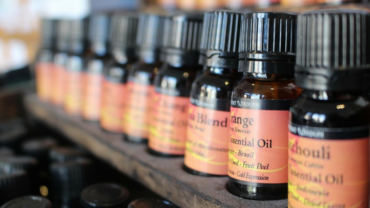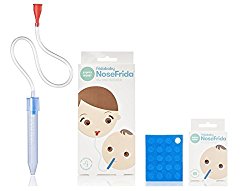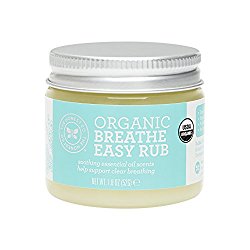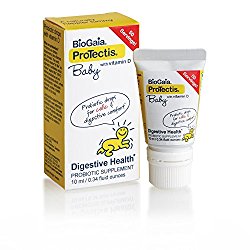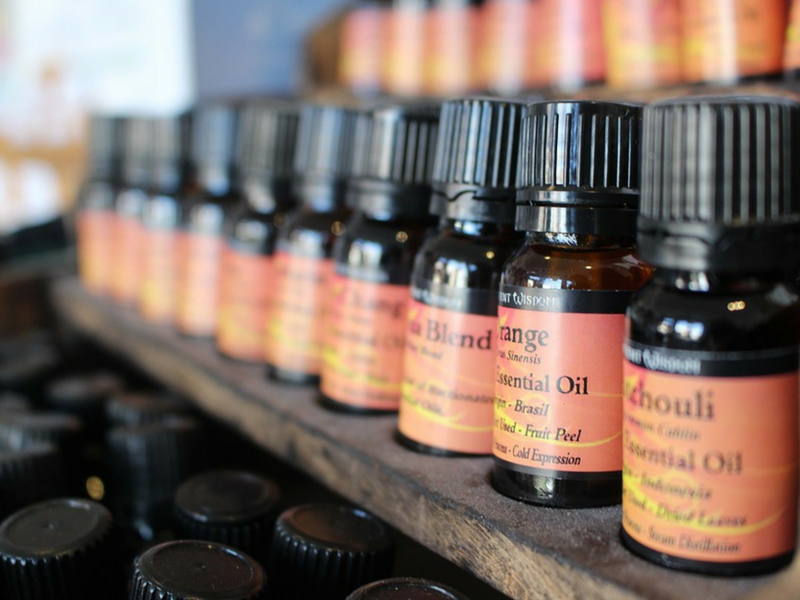Via The Terrific Five: 12 Natural Cold and Flu Remedies for Kids
Sick kids suck. Sick kids suck more than:
- Killing your phone because you forgot it’s in your pocket when you ran into the ocean.
- Losing your wedding ring 2 days after the wedding on the honeymoon.
- Getting food poisoning 4 times in 12 months.
- Going on a diet that does not allow carbs.
- Breaking your wedding ring after your son chucked it on the ground.
- Going scuba diving with a near-empty air tank and then emptying it while deep underwater.
- Losing your wedding ring after your son took it off your finger in the ocean.
(All of these happened to Marc or I…. I will let you guess who did what.)
Why do sick babies especially suck? Well, having a cold usually means a lot of mucus, and your little ones do not have the ability to blow their noses or spit out phlegm. Therefore, we as parents must help them as much as possible to be comfortable through the duration of the cold.
Having been through my fair share of sick kids, here are 12 natural remedies to try and help your kids feel better. Natural remedies are gentle on the kids’ bodies and have fewer side effects than over-the-counter medications. And if you are anything like our household where if one person gets sick, everybody gets sick, then some of these remedies could apply to mommy and daddy as well!
Sleep and Rest
Your body is like a race car, running hard and fast every day to get to places and get things done. However, no matter how well-designed a race car is, it needs to be shut down for maintenance from time to time to ensure that it can continue to perform at its best. Similarly, sleep is when the human body recovers and heals from a hard day of work…or in a toddler’s case, a hard day of trying to kamikaze off the table or run away from his/her own shadow. Rest and sleep are essential for recovering from sickness so stay home and do quiet activities instead of play at the park and make sure he/she gets enough sleep at night and during naps when sick.
Run a Humidifier
A humidifier adds moisture to the air and helps loosen the mucus in your baby’s nostrils to relieve congestion. Either a warm-mist or cool-mist humidifier will work, but most pediatricians recommend cool-mist humidifiers due to concern for safety. A warm-mist humidifier should be kept well out of reach of your kid since the hot steam may cause burns. Also, make sure you clean your humidifier regularly to prevent mold, bacteria, and mildew from building up and being sprayed into the air. We have a humidifier in every bedroom to keep the indoor humidity around 45-50% as recommended by the EPA. My favorite ones for children’s rooms are Crane humidifiers – they come in many adorable animal designs!
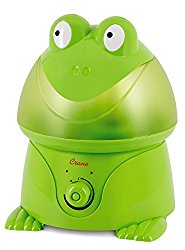
Drink More Fluids
Make sure your kid is drinking a lot of fluids to stay hydrated. Fluids also help flush out the germs from your kid’s system. We like to buy some organic oranges and make fresh squeezed orange juice to get an extra boost of vitamin C. If you are breastfeeding your baby, then increase the feeding frequency. Breast milk contains antibodies that will help strengthen your baby’s immune system.
Use a Nasal Rinse
Argh. I absolutely hate shooting up nasal rinse up a baby’s nostrils, but the saline solution really does help clear his/her nasal passages. We like to use Boogie Mist because the ingredients are only purified water and salt with no other added chemicals. If you are nursing, then you can try and squeeze some breast milk into the baby’s nose to flush out the mucus – the antimicrobial properties of breast milk should help with the baby’s congestion. I usually squeeze the breast milk into a small cup and use a small medicine dropper with a squeeze bulb because it is pretty much impossible to manually squeeze breast milk from your nipple and drop it directly into your baby’s nostrils – trust me, I have tried. Many times. Usually the baby gets a face full of breast milk and of course, none makes it to the nose. Why I hate nasal rinse so much? Because the babies hate it! They will turn away and try and fight you and scream like a banshee, but you just have to hold them still and power through it because they need clear nostrils to breathe and nurse.
Suck the Boogers Out
After you managed to wrestle your baby and get the nasal rinse in his/her nostrils, you need to suck out all the mucus that you just loosened. There are several options:
- Bulb syringe: The hospital usually sends you home with a couple of bulb syringes. Simply squeeze out all the air from the bulb, insert it into your baby’s nose, and release the bulb to suction the mucus out. CAUTION: Do not stick the bulb syringe too far into your baby’s nostrils as the inside of the nose is extremely thin. Inserting it too far may cause your baby to have a nosebleed – I have had experience with this and I was so traumatized that I hurt my baby. Also, the bulb syringe is difficult to clean and inside of the bulb tends to grow mold, so I would recommend using another nose sucker or replace your bulb syringe often.
- NoseFrida The Snotsucker Nasal Aspirator: NoseFrida has a wider tube, so you do not have to insert it far to create a seal with the outside of the baby’s nostrils that helps you suck out the mucus. And don’t worry, there is a filter that blocks the mucus from entering your mouth as you suck.
- Use your mouth: I know, EW. I heard about this method from my mom, who learned it from my grandmother. You just put your mouth gently over your baby’s nose, create a vacuum seal with your mouth, suck the snot out, and spit it out. I know this is gross, but when you have a screaming baby with a stuffy nose who refuses to let you stick anything up his/her nostril, you resort to desperate measures. Ah, the power of motherly love.
Soothe the Nose
Using tissues to wipe the baby’s nose may cause irritation since the little one’s skin is so delicate. Use a wet washcloth instead to wipe away the boogers. If you and your baby are on the go, pack some Boogie Wipes! Boogie Wipes are gentle saline wipes that help dissolve mucus and dried-on snot on your baby’s tender nose. When I get a runny nose, I like to use these wipes as well because after wiping my nose all day, these wipes help keep my nose moisturized so my nose doesn’t get all red and painful.
Steam the Room
I remember distinctly when Alex first got sick around 6 months old. I was so traumatized that I let my little baby get sick that I kept blaming myself for being a bad mother. I tried the nasal rinse and sucking out the snot, but he still couldn’t breathe through his nostrils – a huge issue when it comes to breastfeeding. He didn’t even start on solids yet at that time, so an alternate food source was not an option. Then I remember hearing about steam helping babies breathe. So, I turned on the shower to the hottest temperature, let the water run for a while with the bathroom door closed, and then sat in the bathroom while nursing Alex. With the help of the steam, Alex was able to power through the snot and started nursing happily. I sat in the steamy bathroom for as long as Alex wanted to nurse, happy that he was able to breathe and feed. Plus, the warm steam is good for our pores, right?
Use Homeopathic Remedies
There are a number of homeopathic products to try. The following products have worked well with my children, and have been recommended by several of my mom friends as well:
- Hyland’s Nighttime Mucus + Cold Relief
- Hyland’s Baby Nighttime Tiny Cold Syrup
- Hyland’s 4 Kids Cold and Cough Liquid
*** Please read the instructions carefully to ensure that you give your children the correct dosage. Some of the products listed above are not recommended for children under 2 years old.
Elevate the Head
Sleeping flat may cause some discomfort for your babies when they have a cold due to post-nasal drip. Use some towels or books underneath the head of the mattress to help the baby sleep on an incline. Be careful that the incline is not so steep that your baby may slide down. When nursing, hold the baby more upright so that gravity can help drain the mucus and clear their nasal passageways.
Apply Chest Rub
Gently massage the chest rub onto chest, check, and back to help the little ones breathe and get a peaceful night of sleep. Although it may be an urban legend, some people swear that rubbing chest rub on the bottom of their feet and covering their feet with socks is effective in clearing the nasal passages. I say, if it doesn’t hurt, why not? We like Honest Company’s Organic Breathe Easy Rub because of its natural and organic ingredients.
Give Probiotics
Probiotics, or the “good bacteria” found in our digestive system, help boost the body’s immune system. We give our kids probiotic supplement (Biogaia Protectis Drops) on a daily basis to help them defend against the cold as well as promote a healthy gut. Another way to get probiotics in their bodies is to feed them yogurt. When Alex was a baby he just loved plain, whole milk yogurt and we were happy to give it to him!
Use Essential Oils
The use of essential oils to treat the common cold has been around for centuries. In fact, the chest rub mentioned above has many essential oils in its ingredients. There are many ways you can incorporate essential oils in your cold-fighting arsenal. You can purchase an essential oil diffuser that spread essential oil into the air. You can dilute the essential oil with a carrier oil such as coconut oil and use it topically by applying it to the affected area. You can ingest the oils orally by making cough syrup out of lemon, peppermint, lavender, and frankincense essential oils. Caution: Many essential oils are not considered safe for babies or small children. Always check with a doctor or healthcare provider if you have questions about using essential oils on young children.
Yes, colds suck. We can help make them suck a little less and go away faster for our children by applying natural, home remedies. If I have a choice between losing my wedding ring and a month of cold-free kids, guess which one I would pick?
What other natural remedies do you use to help your children with getting over their colds?
Disclaimer: I am not a medical professional. Always seek the advice of a pediatrician or other qualified health provider with any questions you may have regarding a medical condition.


